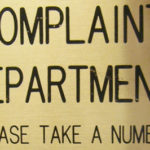Some clergy manipulate and intimidate church members, even while they claim they’re only exercising religious liberty. What should members do about it?
Religious liberty is an interesting concept, isn’t it? Many people who stake out freedom to believe and behave as they wish aren’t so eager to extend that freedom to others. And sometimes, as your question hints, some Christians invoke their religious liberty in order to coerce others.
This isn’t a new trend. In the United States, we fondly claim Europeans settled the New World so they could exercise religious liberty. That’s only partly true. Many, if not most, came to be religiously free, but they weren’t concerned about others’ freedom. So, for example, religious minorities faced challenge and persecution in Congregationalist-dominated Massachusetts, Anglican Virginia and Catholic Maryland.
Roger Williams and John Leland
Thank God, Baptists believed otherwise. In 1636, Roger Williams chartered Rhode Island Colony as a haven for people of all faiths and no faith. Two years later, he founded the first Baptist church in America in Providence. A century and a half after that, Virginia Baptist pastor John Leland convinced James Madison to guarantee religious freedom in the First Amendment: “Congress shall make no law respecting an establishment of religion, or prohibiting the free exercise thereof.”
Baptists also have applied religious liberty principles to themselves. We champion the doctrine of the priesthood of all believers. In sum, it means we think each individual is qualified to relate directly to God. We do not need human mediators. We are free to approach God individually, and freedom invests us with the responsibility to exercise it carefully and wisely.
We also affirm a corollary, local church autonomy. As with individuals, congregations are free to make their own decisions. We don’t need bishops or synods to tell us what to do. And we make those decisions together, valuing and respecting each other’s positions. That’s why most Baptist churches practice pure democracy, with each member possessing a vote when decisions are made.
Respect for religious liberty
Some clergy unfortunately refuse to recognize and honor Baptists’ traditional respect for religious liberty. Worse, some even turn the principle upside-down. They claim their religious liberty trumps their parishioners’—a concept more compatible with medieval Catholicism than traditional Baptist doctrine.
Sign up for our weekly edition and get all our headlines in your inbox on Thursdays
What to do? Start with four steps:
• Educate yourself. Start by reading about Roger Williams and John Leland. Add in Texans George W. Truett and James Dunn. And read The Baptist Identity: Four Fragile Freedoms by Baptist historian Walter Shurden.
• Inform others. Talk about Baptists’ strong heritage of religious liberty. Take an upright, courageous approach—talk to your minister(s) as well as fellow laity.
• Invoke policy. Most churches’ bylaws state how congregational decisions are to be made—usually by majority vote in business session. If your church’s bylaws stipulate this practice, compassionately and respectfully insist on following the rules.
• Get help. If you reach an impasse, suggest an impartial third party from outside the congregation provide mediation. This might be your director of associational missions or perhaps a respected member of another Baptist church in your community.
Marv Knox, editor & publisher
Baptist Standard Publishing
Plano
If you have a comment about this column or wish to ask a question for a future column, contact Bill Tillman, consulting ethicist for “Right or Wrong?” at [email protected].














We seek to connect God’s story and God’s people around the world. To learn more about God’s story, click here.
Send comments and feedback to Eric Black, our editor. For comments to be published, please specify “letter to the editor.” Maximum length for publication is 300 words.